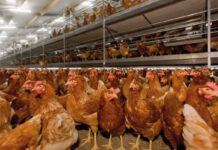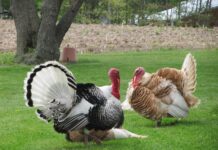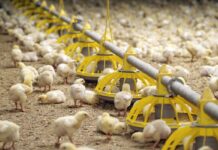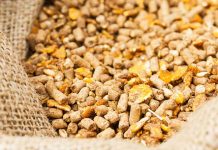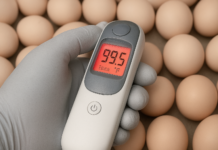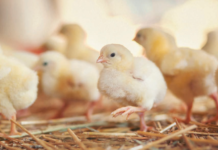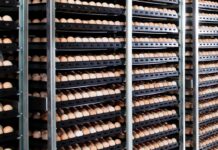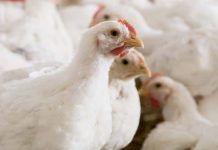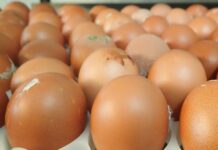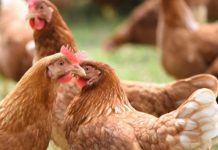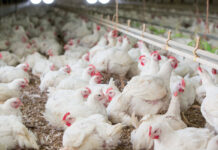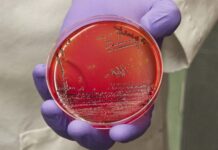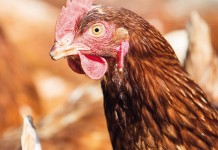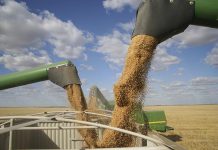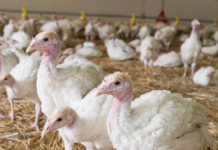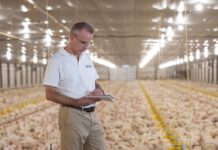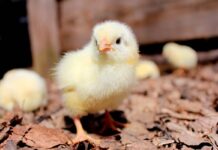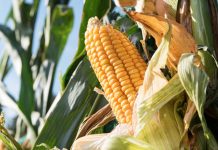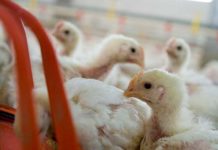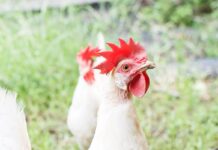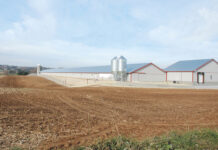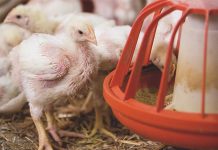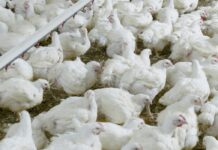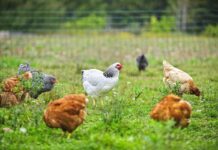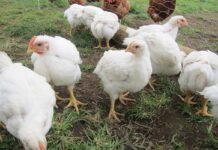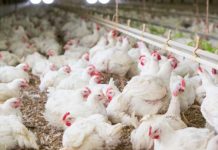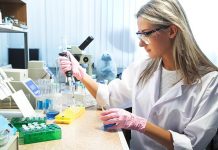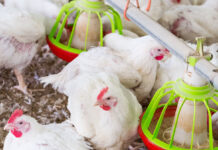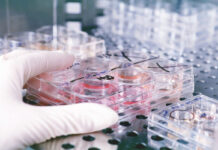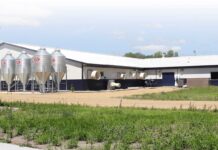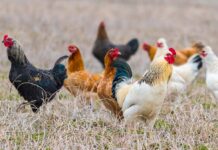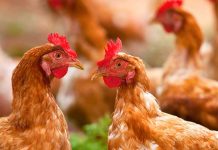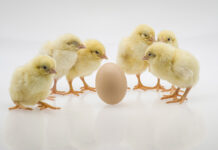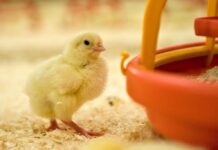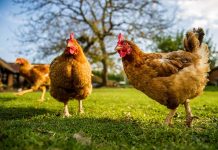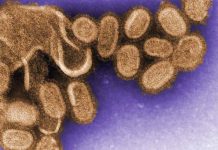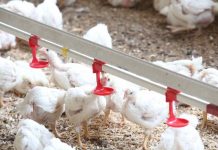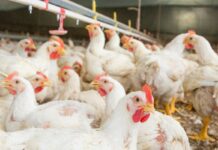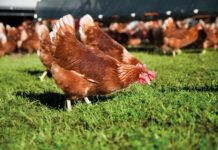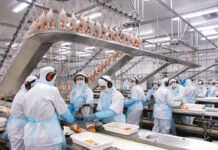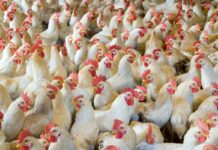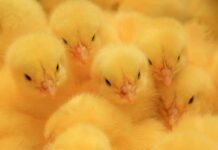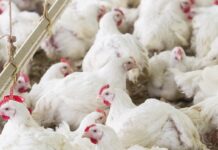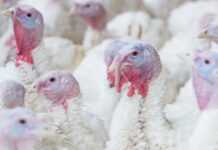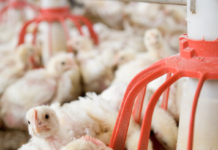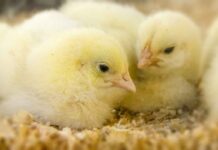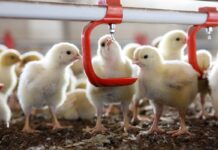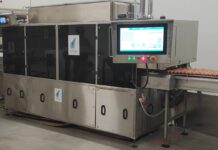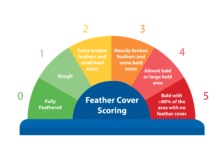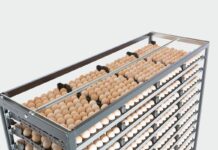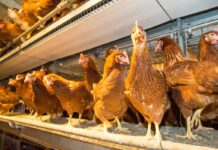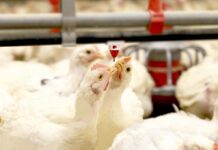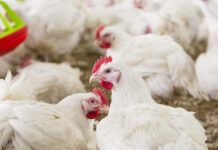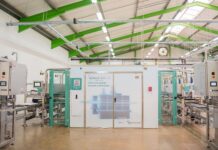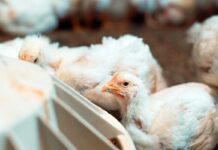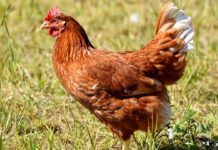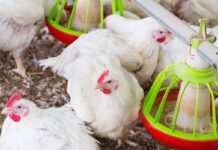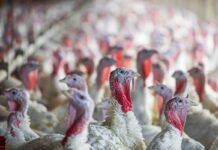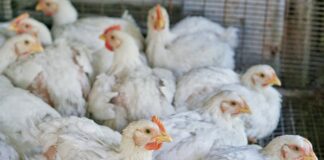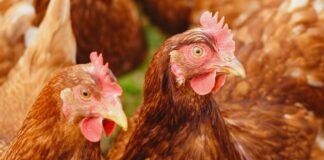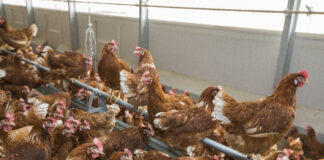Impact of the lighting and feeding regimen during rearing on Hy-Line brown pullet growth...
The impact of two lighting and three feeding programs during rearing on pullet body weight (BW), feed intake (FI), organ characteristics and start of...
Targeted preharvest interventions against Salmonella in turkeys
Salmonella is a foodborne zoonotic pathogen prevalent in poultry production, including turkeys. The pathogen is a constant threat to human public health because of...
Nutritional modulation of broiler intestine in the starter period and intestinal integrity
Gut health which is characterized by intestinal integrity, intestinal microflora, mucin and enterocyte functionality, may be of greatest concern among poultry producers because it...
The role of mechanistic theory in delaying the development of NSPases
This brief paper attempts to review the history of development of the mechanistic theories for NSPases and how this has possibly delayed advances.
NSPase feed...
Modern incubation techniques to improve chick quality and uniformity. The importance of chick quality...
The poultry industry has advanced rapidly over the past decades with hatchery management playing an important role in ensuring the successful production of good-quality...
Reaching full potential with Innova IMPAQT
A real-time impact on performance, availability and quality
A modern poultry processing plant is a complex network of interconnecting processes operating at high speed. It...
How to minimize litter caking issues at the beginning of a flock
A specified minimum ventilation rate based on age of flock in weeks suggests that the amount of moisture needing to be removed from a...
The declining trend of salmonellosis cases in the EU has levelled off
Cases of Salmonella Enteritidis acquired in the EU have increased in humans by 3% since 2014 says the report, which is compiled by the...
Infectious bursal disease viruses may swap genetic material during infection
Live cell imaging has been used by researchers at The Pirbright Institute to reveal new information about how different strains of infectious bursal disease virus...
How can hatcheries lessen the impact of Covid-19?
The world is currently experiencing a pandemic caused by a coronavirus, Covid-19. While the virus probably originated in animals, it appears that it only...
Non-antibiotic intestinal interventions
As the countdown towards implementation of the FDA’s Guidance for Industry 213 continues, interest in non-antibiotic intestinal interventions has increased. Earliest efforts in this...
Effective fumigation of hatching eggs to improve hatch results
Microbial contamination of hatching eggs is a main concern of hatcheries as it causes decreased hatchability, poor chick quality, growth and performance. It is...
Influenza antibodies made by Pirbright reduce disease in chickens
Scientists at The Pirbright Institute have engineered synthetic antibody
molecules that can be administered to poultry to reduce the symptoms of Influenza, as well as...
Growth begins in the gut
In the race to replace antibiotics on Canadian poultry farms, some producers have successfully adopted yeast-based prebiotic supplements. But there’s more potential to enhance...
Formulating layer diets beyond the least-cost model
Due to the high cost of feed for poultry, there is continuous pressure to formulate ‘least-cost’ diets that meet nutritional requirements. However, the main...
Pathogenesis of egg infections by salmonella – Second Part
Early protection has been demonstrated after primary live vaccine administration early post-hatch but this effect is serotype-specific, while cross-protection between some serotypes has been...
Automatic laying nests require good management
Martin Barten, senior hatchery specialist form Pas Reform Hatchery Technologies, tells his experience about a good management of the automatic laying nests.
“Pas Reform’s involvement...
Frontiers in human and veterinary antibody discovery
The Pirbright Institute hosted the inaugural Comparative Veterinary Immunology Group (CVIG) meeting Frontiers in Human and Veterinary Antibody discovery on 26 and 27 November,...
Trials show oregano essential oil supports anticoccidial vaccination
Oregano essential oil, well-documented for its antimicrobial action when included in the diets of various poultry species, has been found to be particularly effective...
Avicola Yugoslavia broiler hatchery is first in Peru to adopt SmartPro™
Avicola Yugoslavia, based in Trujillo, Peru, is the first broiler hatchery in Peru to work with SmartPro™ incubation solutions from Royal Pas Reform –...
EU grains, oilseeds and feed value chain partners for a sustainable production
EU grain and oilseed trade, crushing and feed industry sectors represented by COCERAL, FEDIOL and FEFAC welcomed the European Commission Communication on Stepping up...
Pathological manifestations of highly pathogenic and predominant Eimeria species in turkeys
Coccidiosis is caused by intra-cellular enteric protozoan parasites of the genus Eimeria. Eimeria is a gastrointestinal parasite with a complex life cycle involving an...
Vaccination of turkey breeders to control Salmonella
Salmonella continues to be a top food safety concern for the turkey industry, the USDA, and the consumer. Salmonella bacteria are the most frequently...
Research reveals method to improve Escherichia coli vaccines
A funded research project at the University of Georgia in Athens, Ga. was completed, in which researchers revealed a method to improve Escherichia coli...
Biosecurity measures and new vaccines to combat the spread of bird flu
The recent H5N6 bird flu outbreak is confined to the south of England, partly due to the introduction of an Avian Influenza Protection Zone...
Response of broilers fed phytase enzymes of different optimal pH ranges alone or in...
Dr. Kelley Wamsley and colleagues at the Mississippi State University Poultry Science Department recently completed a research project that investigated how broilers respond when...
A review of novel biological alternatives to antibiotic therapies in poultry
As poultry producers in Australia continue to limit antibiotic use, increasing numbers of alternative therapies and chemical biosecurity products are being used to overcome...
Managing the risk makes the difference in mycotoxin control
A webinar on the results of the 2017 harvest analyses in terms of mycotoxin contamination has been recently held. Two experts on the matter...
Research examines different dietary treatments for woody breast
USPOULTRY and the USPOULTRY Foundation announce the completion of a funded research project at Auburn University in Auburn, Alabama, in which researchers examined different...
Poultry study points to genes linked to food bug
Variation in the response of poultry to Campylobacter helps identify key genes that may provide resistance to infection.
Research has identified genes in poultry that...
Balancing beetles with the bottom line
Darkling beetles, commonly referred to as litter beetles, are a widely encountered pest for those in the broiler production industry. Litter beetles are holometabolous...
First-Ever Report of antimicrobial ase across U.S. broiler chickens and turkeys
Dramatic antimicrobial usage changes and improved antimicrobial stewardship.
The new report shows dramatic reductions of turkey and broiler chicken antimicrobial use over a five-year timeframe....
World Veterinary Day – celebrating the value of vaccination
The theme of this year’s World Veterinary Day – celebrated April, 27th – was Value of Vaccination. To celebrate it, some of the vaccinology...
Overcoming challenges of antibiotic-free production
Antibiotic use once became a conventional, on-farm practice to prevent health issues and boost growth in poultry. Yet, public health concerns about rising bacteria...
New board research initiative grant focused on animal welfare
$110,000 in funding for a new research grant addressing animal welfare. The topic and request for proposal were selected by the USPOULTRY board of...
Artificial structures mitigate simulated adverse pop-hole conditions
There is some evidence that commercial meat chickens prefer to access the range through ‘favoured’ pop-holes; however what makes pop-holes attractive or aversive is...
Infectious bronchitis virus shuts down cell stress signals
A new study from scientists at The Pirbright Institute and collaborators at the University of Surrey provides evidence that infectious bronchitis virus (IBV) can regulate the...
Collaborative regulatory approach can reduce antibiotic use in animal production
As global concern about the human health threat posed by antimicrobial resistance continues rises, governments continue to introduce legislation to curb antibiotic use in...
Research examines novel next generation sequencing techniques
USPOULTRY and the USPOULTRY Foundation announce the completion of a funded research project at the University of Georgia in Athens, Georgia, in which researchers...
UK Veterinary Vaccinology Network
Veterinary researchers from around the world came together at this year’s joint UK & International Veterinary Vaccinology Network Conference on the 9-10 January 2019...
Poultry gut health critical to NAE production
The production of “No Antibiotics Ever” (NAE) poultry is a common trend worldwide today. Despite scientific evidence indicating that specific antibiotic growth promoters (AGP)...
Linear Epitope Mapping of B-cell responses following immunization with Avian Reovirus S1133
Avian reovirus is a causative agents of tenosynovitis and viral arthritis. Commercially available reovirus vaccines do not protect against challenge with emerging variants associated...
Salmonella Reading in commercial turkeys. Why now and how?
Salmonella sp. is one of the most common bacteria associated with foodborne illness in humans. Each year in the United States, foodborne salmonellosis causes...
Back to basics: we need to concentrate on basic management skills
As we move to using less antibiotics in the production of poultry, many alternative products have been developed. While some are affective in specific...
Pirbright’s new Avian Influenza vaccine
An improved poultry influenza vaccine has been developed by researchers from The Pirbright Institute. The potential vaccine triggers a rapid immune response which protects...
How Marek’s disease may directly affect the chicken immune system
Marek’s disease virus (MDV) causes disease in chickens and is estimated to cost the global poultry industry up to US $2 billion each year.
In...
Research provides Insight on colonization of broilers by Salmonella
USPOULTRY and the USPOULTRY Foundation announce the completion of a funded research project at Auburn University in Auburn, Alabama, in which researchers were able...
Innovative approaches to egg sexing
The rise of specialized layer genetics in the mid-20th century introduced a lasting challenge for egg producers: identifying and culling male chicks. This practice...
The European Poultry Meat Sector commits to develop a Sustainability Charter
During the General Assembly of AVEC – The European Poultry Meat Association – members committed to develop a Sustainability Charter which will be published...
Backyard chickens
Are backyard chickens just a transient phenomenon? Current craze? Foodies’ desire for fresh eggs? Baby boomers or young families wanting to get closer to...
H7N9 flu mutation identified that allows immune system escape
The research, published in the Journal of Virology, demonstrated that small genetic differences in the virus surface proteins can prevent antibodies that protect against...
Low protein diets down regulate hepatic enzymes
Low protein (LP) diets have clear benefits for the poultry industry with regards to health, welfare and production. Dean et al., (2006) found that...
Bacterial bile salt hydrolase for a good microbiota
However, limiting antibiotics use could compromise animal production efficiency and health. Thus, there is an urgent need to develop effective alternatives to antibiotic growth...
Feeding strategies for improved performance
When it comes to improving performance through nutrition, meeting poultry requirements in the way they want/need is paramount to fully achieve their genetic potential....
What we do and don’t know related to cage free egg production research
During the early 2000s the pressure was on the U.S. egg industry to increase cage space and to transition from conventional cage systems to...
Researchers evaluate euthanasia methods for large poultry
USPOULTRY and the USPOULTRY Foundation reported the completion of a funded research project at Auburn University in Auburn, Alabama, in which researchers evaluated four...
Use of comparative genomics to identify vaccine candidates for Campylobacter Jejuni
Interventions to control and reduce the incidence of Campylobacter jejuni colonization in poultry is important in order to reduce the burden of foodborne illness in humans....
Clinical coccidiosis in broilers with concurrent infection of Eimeria maxima and Eimeria praecox
Coccidiosis is a complex disease in chickens caused by protozoan parasites in the genus Eimeria. As Eimeria species are ubiquitous in poultry facilities, coccidiosis...
An alternative method to fight Avian Influenza Virus
A recent project was completed at the University of Iowa, Iowa City, Iowa, in which researchers developed a mobile system that can inactivate Avian...
New animal welfare labelling system
The conclusions of the animal welfare labelling subgroup of the Commission’s Animal Welfare Platform were released. Copa and Cogeca welcomes the main conclusions of...
Boosting Chick Health from Day One: The Benefits of Spraying a Gelled Nutritional Complex...
In modern poultry production, the first hours of a chick’s life are critical. Yet, due to the natural spread of hatching over 24 to...
Using accelerometers and artificial intelligence to predict presence of woody breast
The broiler industry has been challenged with a condition referred to as "woody breast" for the past 8-10 years, which can affect a significant...
Concurrent infection of Histomonas meleagridis and Eimeria meleagridis in a turkey flock
Blackhead disease (histomoniasis) in turkeys is one of the protozoan diseases sporadically documented in commercial turkey production facilities. Histomoniasis may induce mild, moderate, or...
Effect of multi-xylanase system on growth performance and gut health in broilers
Non-starch polysaccharides (NSP), particularly arabinoxylans (AX), with complex biochemical structures are one of the main causative factors for impaired growth performance and poor gut...
Profiling Salmonella serotypes through broiler processing
USPOULTRY and the USPOULTRY Foundation announce the completion of a funded research project at the University of Georgia in which researchers profiled Salmonella serotypes through broiler processing.
The...
The effect of hot and cold hatcher temperature profiles on hatchability and chick quality
An eggshell temperature of 100°F (37.8°C) is widely accepted as optimal for embryonic development from the start of incubation up until transfer time. Eggshell...
Royal Pas Reform introduces Bangladesh’s first SmartStart™ post-hatch feeding system in Joypurhat
A new chapter for chick welfare, uniformity, and early performance in the Bangladesh poultry sector
Joypurhat, Bangladesh, has marked a significant milestone in the nation’s...
Drinking Water Management in Broiler Production
Why Water Quality and System Management Matter More Than Ever
In modern broiler production, drinking water is often treated as a secondary input compared to...
Turning Poultry Manure into Power: How Biogas Can Benefit Your Farm and the Climate
As the poultry sector looks for ways to improve sustainability and energy independence, biogas production from chicken manure is proving to be a practical...
Nectra OVOSEX1 – Brown layer in-ovo sexing machine & technology
NECTRA is a worldwide leader in automated hatchery equipment, providing comprehensive solutions for handling and analyzing live fertile eggs and embryos up to the day-old...
Female persistency post-peak. Managing fertility and production
INTRODUCTION
Managing breeding stock fertility and egg production is critical to achieving good breeder production and welfare. However, maintaining persistent egg output and hatchability remains...
Hatching eggs: the importance of assessing internal egg quality
Hatching egg quality has a significant impact on hatchability and chick quality. By making egg quality control a part of the routine procedures in...
Perch usage in laying hens
Modern poultry farming is seeing a significant shift towards higher welfare standards. This is due to the demand of the public for welfare-friendly products...
Waterline cleaning between broiler batches: a key to better bird health and performance
Clean water is essential for poultry—not just as a source of hydration but as a vital part of nutrition, digestion, and temperature regulation. In...
A synergistic herbal alternative combination: curcumshield vs poultry infections – a broad-spectrum study
Introduction
In the case of bacterial infections, various categories of antibiotics – especially synthetic ones – are widely used as broad-spectrum bacteriostatic and bactericidal agents....
Revolutioning poultry: Orbem’s ethical, ai-powered in-ovo sexing technology
Orbem has developed a groundbreaking solution to address one of the most significant ethical and economic challenges in the global poultry industry: the culling...
Decoding cecal cores in chickens: from necropsy to diagnosis
Cecal cores are a classical pathological gross lesion seen in field necropsies. Even though a presumptive diagnosis is made based on the visualization of...
A comparison of hen performance during an extended laying cycle based on hen body...
This study evaluated the performance of Hy-Line Brown hens with different body weights (BW) up to 100 weeks of age. Hens in the lowest...
Incorporating an essential oil and saponin blend as part of an effective coccidiosis management...
Coccidiosis continues to be a top challenge in the poultry industry and growing evidence of reduced sensitivity to traditional anticoccidials like ionophores and chemicals...
Warm weather ventilation management
A poultry house ventilation system is arguably the most important management tool for a farm manager to use. As the birds grow and climates...


